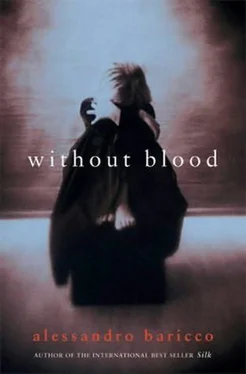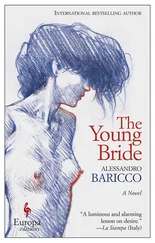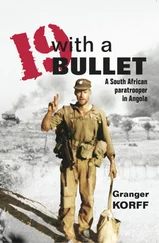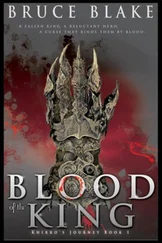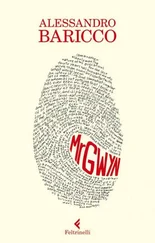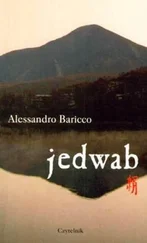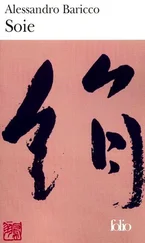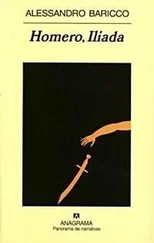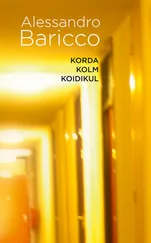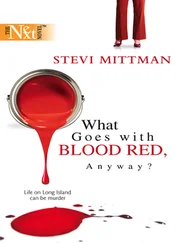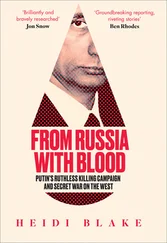“We were soldiers.”
“What do you mean?”
“We were fighting a war.”
“What war? The war was over .”
“Not for us.”
“Not for you?”
“You don’t know anything.”
“Then tell me what I don’t know.”
“We believed in a better world.”
“What do you mean?”
“…”
“What do you mean?”
“You can’t turn back, when people begin to murder each other you can’t go back. We didn’t want to get to that point, others started it, but then there was nothing else to do.”
“What do you mean, a better world?”
“A just world, where the weak don’t have to suffer for the evil of the others, where everyone has a right to happiness.”
“And you believed that?”
“Of course I believed it, we all believed it, it could be done and we knew how.”
“You knew?”
“Does that seem so strange to you?”
“Yes.”
“And yet we knew. And we fought for that, to be able to do what was right.”
“Killing children?”
“Yes, if it was necessary.”
“But what are you saying?”
“You can’t understand.”
“I can understand, you explain and I’ll understand.”
“…”
“…”
“You can’t sow without plowing first. First you have to break up the earth.”
“…”
“First there has to be a time of suffering, do you understand?”
“No.”
“There were a lot of things that we had to destroy in order to build what we wanted, there was no other way, we had to be able to suffer and to inflict suffering, whoever could endure more pain would win, you cannot dream of a better world and think that it will be delivered just because you ask for it. The others would never have given in, we had to fight, and once you understood that it no longer made any difference if they were old people or children, your friends or your enemies, you were breaking up the earth—then there was nothing but to do it, and there was no way to do it that didn’t hurt. And when everything seemed too horrific, we had our dream that protected us, we knew that however great the price the reward would be immense, because we were not fighting for money, or a field to work, or a flag. We were doing it for a better world, do you understand what that means?, we were restoring to millions of men a decent life, and the possibility of happiness, of living and dying with dignity, without being trampled or scorned, we were nothing, they were everything, millions of men, we were there for them. What’s a boy who dies against a wall, or ten boys, or a hundred, we had to break up the earth and we did, millions of other children were waiting for us to do it, and we did, maybe you should…”
“Do you really believe that?”
“Of course I believe it.”
“After all these years you still believe it?”
“Why shouldn’t I?”
“You won the war. Does this seem to you a better world?”
“I have never asked myself.”
“It’s not true. You have asked yourself a thousand times, but you’re afraid to answer. Just as you have asked yourself a thousand times what you were doing that night at Mato Rujo, fighting when the war was over, killing a man in cold blood whom you had never even seen before, without giving him the right to a trial, simply killing him, for the sole reason that by now you had begun to murder and were no longer capable of stopping. And in all these years you have asked yourself a thousand times why you got involved in the war, and the whole time your better world is spinning around in your head, so that you will not have to think of the day when they brought you the eyes of your father, or see again all the other murdered men who then, as now, filled your mind, an intolerable memory. That is the only, the true reason you fought, because this was what you had in mind, to be revenged. And now you should be able to utter the word ‘revenge.’ You killed for revenge, you all killed for revenge, it’s nothing to be ashamed of, it’s the only drug for pain there is, the only way not to go mad, the drug that enables us to fight. But it didn’t free you, it burned your entire life, it filled you with ghosts. In order to survive four years of war you burned your entire life, and you no longer even know—”
“It’s not true.”
“You no longer even remember what life is .”
“What do you know about it?”
“Yes, what can I know about it, I’m only an old woman who is mad, right?, I can’t understand, I was a child then, what do I know about it?, I’ll tell you what I know, I was lying in a hole, underground, three men came, they took my father, then—”
“Stop it.”
“Don’t you like this story?”
“I’m not sorry for anything—we had to fight and we did, we weren’t sitting at home with the windows shut, waiting for it to pass, we climbed out of our holes and did what we had to do, that’s the truth, you can say anything now, you can find all the reasons you want, but it’s different, you had to be there to understand, you weren’t there, you were a child, it’s not your fault, but you can’t understand.”
“You explain, I’ll understand.”
“I’m tired now.”
“We have as much time as we want. You talk, I’ll listen.”
“Please, leave me alone.”
“Why?”
“Do what you have to do, but leave me in peace.”
“What are you afraid of?”
“I’m not afraid.”
“Then what is it?”
“I’m tired.”
“Of what?”
“…”
“…”
“Please…”
“…”
“…”
“…”
“Please…”
Then the woman lowered her eyes. She drew away from the table and leaned against the back of the chair.
She glanced around, as if suddenly, at that moment, she had realized where she was. The man was kneading his fingers, one hand clasped in the other, but it was the only thing in him that was moving.
At the back of the café, the three musicians played songs from other times. Someone was dancing.
For a while they stayed like that, in silence.
Then the woman said something about a celebration many years earlier, where there was a famous singer who had asked her to dance. In a low voice she told how, though he was old, he moved with astonishing lightness, and before the music ended he had explained to her how a woman’s destiny is written in the way she dances. Then he had told her that she danced as if dancing were a sin.
The woman smiled and looked around again.
Then she said something else. It was that evening, at Mato Rujo. She said that when she had seen the trapdoor raised she had not been afraid. She had turned to look at the boy’s face, and everything had seemed to her very natural, even obvious. She said that in some way she had liked what was happening. Then he had lowered the door, and then, yes, she had been afraid, with the worst fear of her life. The darkness that returned, the sound of the baskets dragged over her head again, the boy’s footsteps growing distant. She had felt lost. And that terror had never left her. She was silent for a moment and then she added that the mind of a child is strange. I think that at that moment, she said, I wished for only one thing: that that boy would take me away with him.
She went on talking, about children and about fear, but the man didn’t hear her because he was trying to put together the words to say one thing that he would have liked to let the woman know. He would have liked to tell her that while he was looking at her, that night, curled up in the hole, so orderly and clean— clean —he had felt a kind of peace that he had never found again, or at least hardly ever, and then it was looking at a landscape, or staring into the eyes of an animal. He would have liked to explain to her exactly that sensation, but he knew that the word “peace” was not enough to describe what he had felt, and yet nothing else occurred to him, except perhaps the idea that it had been like seeing something that was infinitely complete . Just as many other times, in the past, he had felt how difficult it was to give a name to what had happened to him in the war, as if there were a spell under which those who had lived couldn’t tell the story, and those who knew how to tell the story had not been fated to live. He looked at the woman and saw her speak, but he didn’t hear her because his thoughts again carried him away and he was too tired to resist. So he remained there, leaning back in the chair, and did nothing, until he began to weep. He wasn’t ashamed, he didn’t hide his face behind his hands, he didn’t even try to control his face, contorted in sadness, while the tears descended to his collar, sliding down his neck, which was white and badly shaved, like the neck of every old man in the world.
Читать дальше
